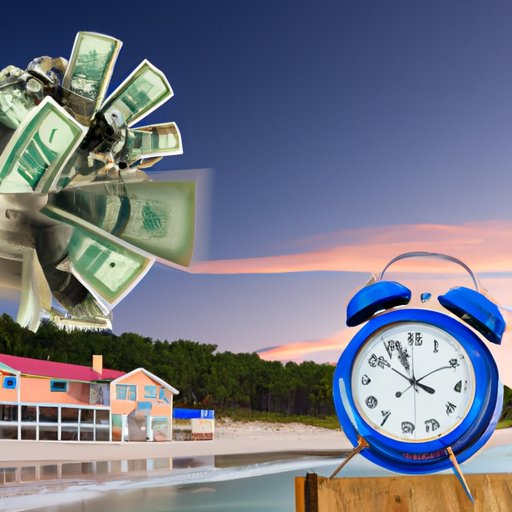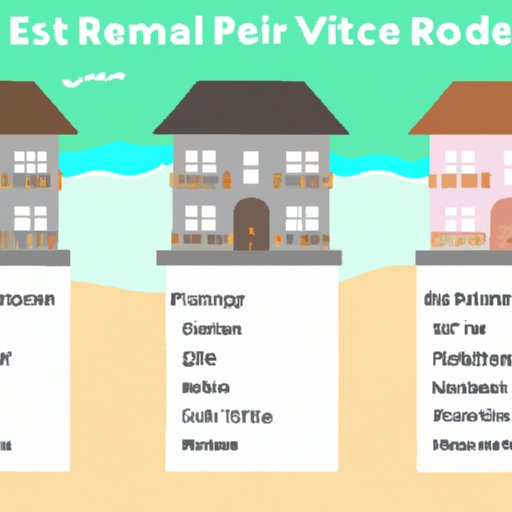Introduction
A vacation home is an investment property that can be used for leisure or rental purposes. It is usually located in a desirable location with access to popular attractions, outdoor activities, and other amenities. Purchasing a vacation home can provide an excellent return on investment and allow owners to enjoy their own personal getaway whenever they want. However, there are certain considerations to keep in mind before deciding when to buy a vacation home.

Analyzing the Pros and Cons of Buying a Vacation Home
Before investing in a vacation home, it’s important to weigh the potential benefits and drawbacks. Owning a vacation home can provide many advantages, such as being able to use it as a personal retreat and having the opportunity to rent it out for additional income. Additionally, vacation homes generally appreciate in value over time, making them an attractive long-term investment option. On the other hand, owning a vacation home also comes with some potential downsides, such as the need for regular maintenance and upkeep, as well as the possibility of vacancies if you choose to rent it out.
Exploring the Financial Benefits of Investing in a Vacation Home
One of the main reasons people purchase vacation homes is for the potential return on investment (ROI). The ROI of owning a vacation home will depend largely on the location, size, condition, and features of the property. Generally speaking, vacation homes in desirable locations that offer amenities like swimming pools, beach access, or mountain views tend to have higher ROIs. Additionally, vacation home owners may be able to take advantage of certain tax breaks, such as deductions for mortgage interest or depreciation of the property.

Timing the Market to Find the Best Deals on Vacation Homes
When it comes to finding the best deals on vacation homes, timing the market is key. Researching local market trends can help you identify when prices are likely to fluctuate and determine the right time to invest. Additionally, understanding seasonal price fluctuations can help you find the most affordable times of year to purchase a vacation home. For example, prices in coastal areas tend to be highest during the summer months, while prices in ski towns tend to be higher in the winter.

Comparing Rental Rates for Different Areas to Determine the Best Time to Buy a Vacation Home
If you plan to rent out your vacation home, it’s important to compare rental rates in different areas to determine the best time to buy. Analyzing rental rates by location can give you an idea of how much you can expect to make from renting out your vacation home. Additionally, evaluating long-term returns can help you decide whether or not a particular area is a good investment.
Investigating Tax Breaks for Vacation Home Owners
Vacation home owners may be eligible for certain tax breaks, including federal, state, and local tax deductions. At the federal level, vacation home owners may be able to deduct mortgage interest payments on their taxes. Additionally, some states and localities may offer tax incentives or credits for vacation home owners. It’s important to research the applicable tax laws in your area before investing in a vacation home.
Conclusion
Buying a vacation home can provide an excellent return on investment and allow owners to enjoy their own personal getaway whenever they want. However, it’s important to consider the pros and cons of owning a vacation home, explore the financial benefits of investing in one, and time the market to find the best deals. Additionally, researching rental rates for different areas and investigating tax breaks for vacation home owners can help you make an informed decision about when to buy a vacation home.
(Note: Is this article not meeting your expectations? Do you have knowledge or insights to share? Unlock new opportunities and expand your reach by joining our authors team. Click Registration to join us and share your expertise with our readers.)
